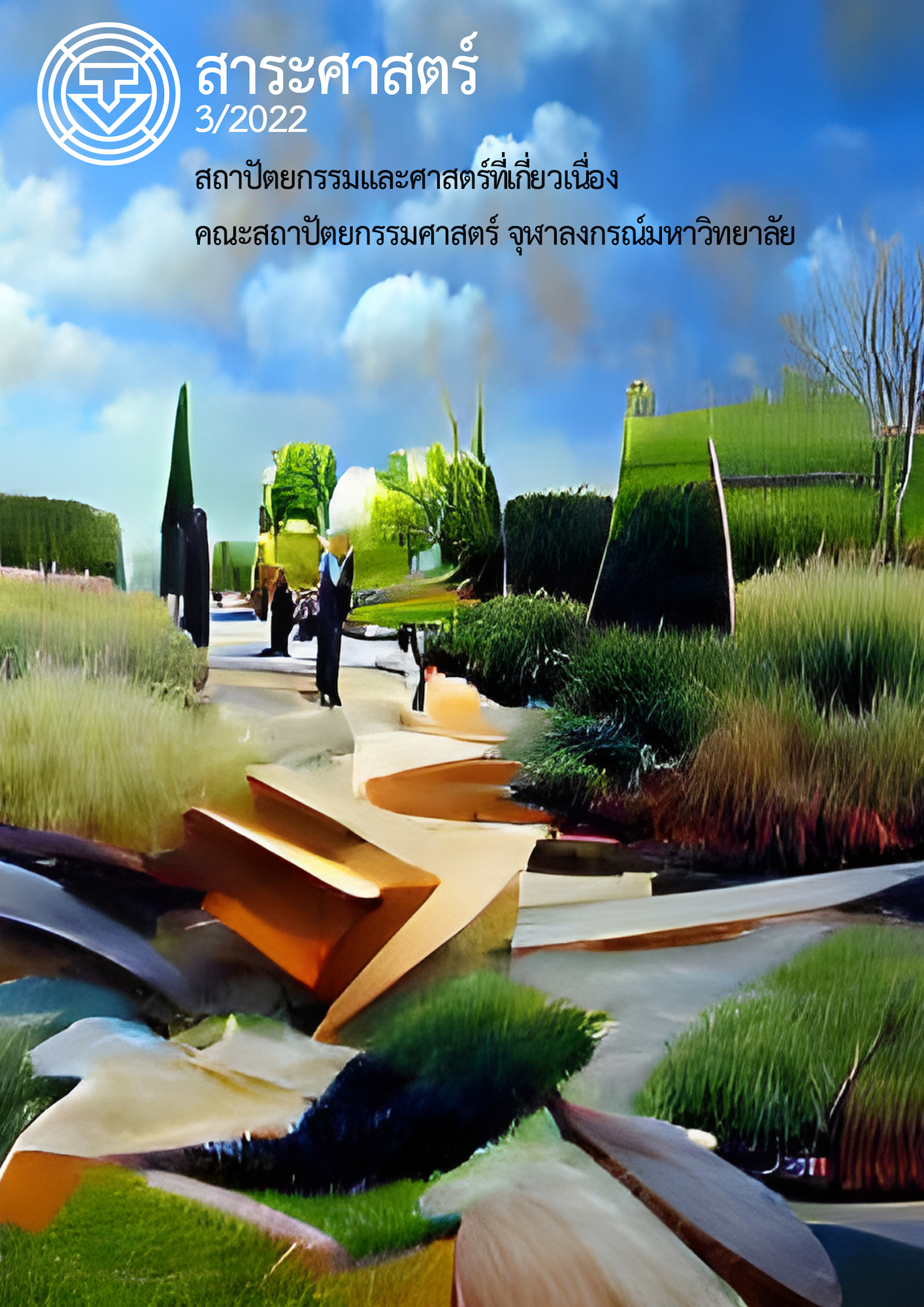ปริทัศน์บทความวิจัยเรื่อง : พฤติกรรมการท่องเที่ยวของนักท่องเที่ยวคุณภาพในบริบทประเทศไทย
Main Article Content
บทคัดย่อ
อุตสาหกรรมการท่องเที่ยวเป็นอุตสาหกรรมที่มีความสำคัญต่อภาคเศรษฐกิจของประเทศไทยสะท้อนให้เห็นได้จากรายได้ที่เข้ามาของอุตสาหกรรมประเภทนี้ที่มากกว่าร้อยละ 20 ของรายได้ทั้งหมดในประเทศ ในอดีตประเทศไทยได้มีการใช้ตัวชี้วัดความสำเร็จทางการท่องเที่ยวผ่านปริมาณของนักท่องเที่ยวที่เดินทางเข้ามาท่องเที่ยวในประเทศทั้งชาวไทยและชาวต่างชาติภายหลังได้พบว่าการเข้ามาของจำนวนนักท่องเที่ยวที่มีจำนวนมากจนเกินความสามารถในการรองรับของพื้นที่ก่อให้เกิดปัญหากับทรัพยากรการท่องเที่ยวในพื้นที่ตามมาหลายประการ ประเทศไทยจึงได้มีการปรับทิศทางของแผนการพัฒนาการท่องเที่ยวโดยมุ่งไปที่การดึงดูดนักท่องเที่ยวคุณภาพ บทความปริทัศน์ฉบับนี้ผู้เขียนจึงมุ่งที่จะสำรวจและรวบรวมพฤติกรรมการท่องเที่ยวของกลุ่มนักท่องเที่ยวคุณภาพ เพื่อให้ทราบถึงความเป็นมาของนิยามนักท่องเที่ยวคุณภาพและนำมาสู่การระบุถึงตัวชี้วัดความสำเร็จในการดึงดูดนักท่องเที่ยวคุณภาพ ซึ่งได้มีการกำหนดคุณลักษณะของพฤติกรรมการใช้จ่ายและระยะเวลาในการพำนักหรือการพักค้างเป็นตัวชี้วัดที่เหมาะสมกับแผนพัฒนาการท่องเที่ยวของประเทศไทยในปัจจุบัน นอกจากนี้ได้มีการจัดทำเสนอแนะในการวิเคราะห์ข้อมูลทั้งในฝั่งพฤติกรรมและความต้องการของนักท่องเที่ยวคุณภาพ รวมไปถึงการวิเคราะห์ศักยภาพและความพร้อมในการรองรับนักท่องเที่ยวคุณภาพของพื้นที่ ผ่านแนวคิดองค์ประกอบการท่องเที่ยวอันประกอบไปด้วยองค์ประกอบในด้านสิ่งดึงดูดใจ ด้านสิ่งอำนวยความสะดวก และด้านความสามารถในการเข้าถึง เพื่อจะสามารถวางทิศทางของแผนนโยบายในการดึงดูดนักท่องเที่ยวคุณภาพให้เกิดความสมดุลกับความต้องการทั้งจากฝั่งของนักท่องเที่ยวคุณภาพและในฝั่งของพื้นที่
Article Details
เอกสารอ้างอิง
การท่องเที่ยวแห่งประเทศไทย. (2542). การวางแผนและพัฒนาการท่องเที่ยว ปี 2542. สืบค้นเมื่อ 13 มีนาคม 2565, จาก http://tourismlibrary.tat.or.th/medias/T14751.pdf
การท่องเที่ยวแห่งประเทศไทย. (2558). โครงการศึกษาตลาดนักท่องเที่ยวศักยภาพสูง จีน อินเดีย รัสเซีย. สืบค้นเมื่อ 18 พฤษภาคม 2565, จาก https://tatreviewmagazine.files.wordpress.com/2015/05/china-india-russia_high_potential.pdf
การท่องเที่ยวแห่งประเทศไทย. (2561). โครงการศึกษาพฤติกรรมนักท่องเที่ยวชาวไทยที่มีศักยภาพในการใช้จ่าย. สืบค้นเมื่อ 20 พฤษภาคม 2565, จาก http://tourismlibrary.tat.or.th/medias/sector7rabbithood.pdf
กฤษฎา กาญจนาลัย. (2561). แนวทางการพัฒนาอุตสาหกรรมการท่องเที่ยวเชิงคุณภาพ กรณีศึกษาจังหวัดภูเก็ต. กรุงเทพฯ : วิทยาลัยป้องกันราชอาณาจักร.
จารุวรรณ พิลา. (2563). การเสริมสร้างความจงรักภักดีต่อจุดหมายปลายทางด้านการท่องเที่ยวของประเทศไทยสำหรับกลุ่มนักท่องเที่ยวชาวจีนที่มีศักยภาพสูง .(วิทยานิพนธ์ปริญญามหาบัณฑิต, สถาบันบัณฑิตพัฒนบริหารศาสตร์).
ณัฏฐกฤติ นิธิประภา. (2564). บทวิเคราะห์สถานการณ์ MSME สาขาธุรกิจท่องเที่ยว ปี 2564 และแนวโน้มปี 2565. สืบค้นเมื่อ 30 พฤษภาคม 2565, จาก https://www.sme.go.th/upload/mod_download/download-20211012232619.pdf
ณัฐนิช ชัยดี. (2564). ใคร ๆ ก็เป็นนักท่องเที่ยวคุณภาพได้ : รู้จัก Responsible Tourism เที่ยวไทยอย่างรับผิดชอบ. สืบค้นเมื่อ 4 มิถุนายน 2565, จาก https://thematter.co/brandedcontent/responsible-tourism/156064
ณิชาภัทร สุรวัฒนานนท์. (2561). การท่องเที่ยวกับบทบาทขับเคลื่อนเศรษฐกิจไทย ฮีโร่จำเป็นหรือ ฮีโร่ตัวจริง? สืบค้นเมื่อ 4 มิถุนายน 2565, จาก https://www.bot.or.th/Thai/ResearchAndPublications/DocLib_/Article_29Oct2019.pdf
ธุรกิจท่องเที่ยว. (2563). หวั่นท่องเที่ยวโลกทรุดยาว WTO เร่งทั่วโลกรีสตาร์ต. สืบค้นเมื่อ 16 มีนาคม 2565, จาก https://www.prachachat.net/tourism/news-489984
ธุรกิจท่องเที่ยว. (2565). ททท. เปิดแผนเชิงรุกท่องเที่ยวไทยดันรายได้รวม 1.28 ล้านล้านบาท. สืบค้นเมื่อ 28 พฤษภาคม 2565, จาก https://www.prachachat.net/tourism/news-863955
บุญเลิศ จิตตั้งวัฒนา. (2548). การพัฒนาการท่องเที่ยวแบบยั่งยืน. กรุงเทพฯ: มหาวิทยาลัยธรรมศาสตร์.
พลอยจันทร์ สุขคง. (2561). หรือเราควรจะหยุดเที่ยว? ไขปัญหาภาวะ ‘นักท่องเที่ยวล้นเมือง’ ทั่วทุกมุมโลก. สืบค้นเมื่อ 4 มิถุนายน 2565, จาก https://thestandard.co/overtourism
ยงยุทธ แก้วอุดม. (2563). ม.หอการค้าฯ ชี้ทางรอดเที่ยวไทย โฟกัสนักท่องเที่ยวคุณภาพ-เพิ่มรายได้. สืบค้นเมื่อ 18 มีนาคม 2565, จาก https://www.prachachat.net/tourism/news-463995
ยุทธศักดิ์ สุภสร. (2565). 2565 ปีพลิกโฉมเที่ยวไทยก้าวสู่ท่องเที่ยวคุณภาพ-ยั่งยืน. สืบค้นเมื่อ 18 มีนาคม 2565, จาก https://www.prachachat.net/tourism/news-834718
วินิจ วีรยางกูร. (2532). การจัดการอุตสาหกรรมการทองเที่ยว. กรุงเทพฯ: ภาควิชาบริหารธุรกิจ มหาวิทยาลัยเกษตรศาสตร์.
ศูนย์วิเคราะห์เศรษฐกิจ. (2564). ttb analytics ประเมินผลกระทบโควิด ภาคการท่องเที่ยวช่วงที่ผ่านมา. สืบค้นเมื่อ 13 มีนาคม 2565, จาก https://www.ttbbank.com/th/newsroom/detail/travel-thailand-after-unlocking
สันติ ชุดินธรา. (2560). การท่องเที่ยวของแหล่งท่องเที่ยวหลัก...อย่าให้ใหญ่เกินตัว (Tourism: Super Size ME) [จุลสาร]. กรุงเทพฯ: การท่องเที่ยวแห่งประเทศไทย.
สำนักงานปลัดกระทรวงการท่องเที่ยวและกีฬา. (2563). โครงการสำรวจทัศนคติและความพึงพอใจของนักท่องเที่ยวชาวไทยและชาวต่างชาติที่เดินทางท่องเที่ยวในประเทศไทย. สืบค้นเมื่อ 21 พฤษภาคม 2565, จาก https://secretary.mots.go.th/ewtadmin/ewt/policy/download/final%20report_63.pdf
สิทธิพล วิบูลย์ธนากุล. (2562). ความท้าทายการท่องเที่ยวไทย ปัญหานักท่องเที่ยวล้น. สืบค้นเมื่อ 20 พฤษภาคม 2565, จาก https://www.bangkokbiznews.com/blogs/columnist/123038
Aguiló, E., Rosselló, J., & Vila, M. (2017, January). Length of stay and daily tourist expenditure: A joint analysis. Tourism Management Perspectives, 21, 10-17.
Akhir, Laporan. (2019). Kajian length of stay Kab Bantul 2019. Retrieved from https://pariwisata.bantulkab.go.id/filestorage/dokumen/2019/10/Kajian Length of Stay Kab Bantul 2019.pdf
Collier, Alan & Harraway, Sue. (1987). The New Zealand tourism industry. Auckland: Longman.
Deana, D. L., Noviantib, S. & Noorc, A. (2020). The international and domestic tourist behavior in Australia: Quality vs. quantity issue in regional tourism development perspective. International Journal of Applied Business Research, 2, 47-58.
Maulana, A. (2018). Pemetaan prospek kunjungan wisatawan asal Tiongkok di pasar global. Jurnal Ekonomi dan Pembangunan, 26(2), 117-130.
Maulana, A., Koesfardani, C. P. & Amory, G. A. (2020). The mapping of quality tourist prospects for Indonesia’s tourism markets. Binus Business Review, 11, 167-174.
Milano, C., Cheer, J. M., & Novelli, M. (2018). Overtourism: A growing global problem. Retrieved from https://theconversation.com/overtourism-a-growing-global-problem-100029
Rizal, A. (2021). Implementation of tourism development policies in Garut District, West Java province, Indonesia. The Institute of Biopaleogeography named under Charles R. Darwin, 5, 1-40.
Wang, L., Fong, D. K. C., Law, R., & Fang, B. (2018). Length of stay: Its determinants and outcomes. Journal of Travel Research, 57(4), 472-482.
Wibawa, B., Prijambodo, T., Fauzi, I., & Shabrina, N. (2020, September). Marine tourism infrastructure and human resources development. Journal of Physics: Conference Series, 1625(1), 012068.


